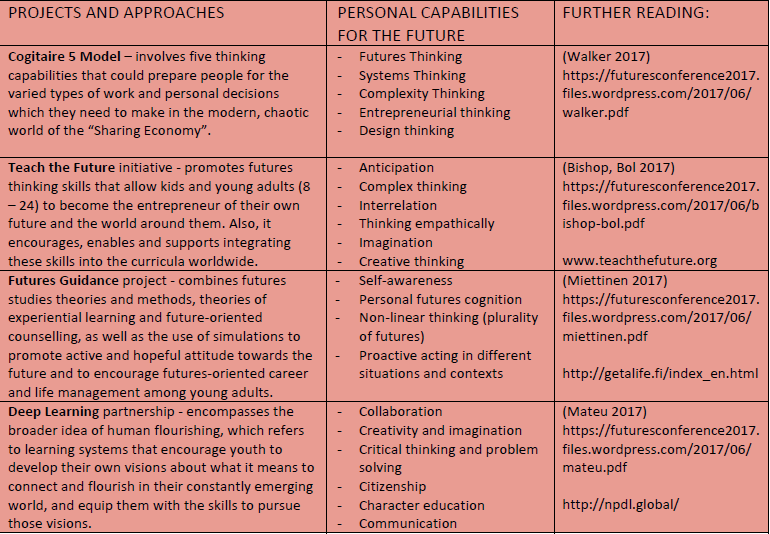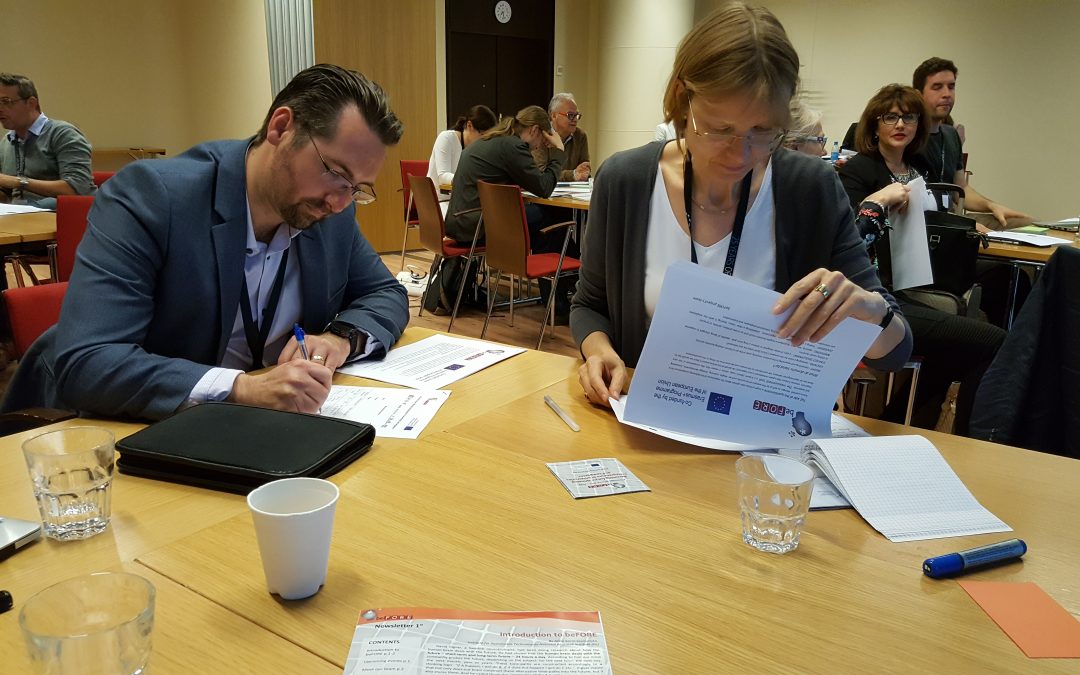Author: Anna Sacio‐Szymańska, ITeE‐PIB (PL)
The representatives of beFORE project team attended 18th Futures of a Complex World conference to discuss the results that we have achieved so far with experts and practitioners in the field of Futures Studies.
The conference was organized by Finland Futures Research Centre of University of Turku in co‐operation with Finland Futures Academy, the National Foresight Network, Finland and the Foresight Europe Network, FEN, which is also the associated partner of beFORE project.
With 120 speeches scheduled, along 8 key themes (Fig. 1) it was evident from the start that we would have to prioritise and eliminate in order to make a choice. Having done that, we realized that a pool of presentations that were worth attending, was still enormous.
Table1: Futures of a Complex World conference 2017 ‐ topics of thematic sessions and keynotes

Taking into account crucial educational component of beFORE project, we have decided to attend the keynotes
and the sessions on “Futures of education, learning and work” (Tabl. 1, 2).
Table2: Futures of a Complex World conference 2017 – selected presentations

We got deeply inspired by the presentations, which focused on the topic of personal capabilities for the future (Tab. 1). These were also the topics explored by our consortium in the beFORE Knowledge Alliance project. More specifically, in the first 6‐month long phase of the project we have been screening the literature in the fields of futures studies, innovation management and entrepreneurship. Similarly, we carried out the analysis of higher education curricula, non‐formal education course offers and business case studies. Our aim was to identify and single out competences of a future‐oriented entrepreneur.
Table3: Overview of topics related to personal capabilities for the future presented at “Futures of education, learning and work” session during Futures of a Complex World conference in Finland (2017)

In Turku, the mission set for the beFORE team, was to ask the experts of Foresight Europe Network to comment and assess the list of 39 competences of a future‐oriented entrepreneur, that were selected at a certain stage of analyses carried out at that time.
While we are writing this overview, the beFORE team responsible for the normative analysis and clustering of the competences is
still working, so that the final list is exhaustive enough to be included in the training needs analysis questionnaire, which will then be distributed among university students, university teachers and entrepreneurs.
- The content of the presentations that we attended at the conference and the discussions we had at FEN meeting have boosted the interest of beFORE project team members towards:
- exploring and under‐standing why a certain future‐orientation competence matters in a given job situation;
deliberating whether it is still possible to develop future‐orientation competences later in life (and through distant mode of education); - learning from those who are actually “planting a certain competence seed” related to futures thinking and acting among youngsters (primary or high school students).
We hope to address these crucial issues in the upcoming phases of our project.

